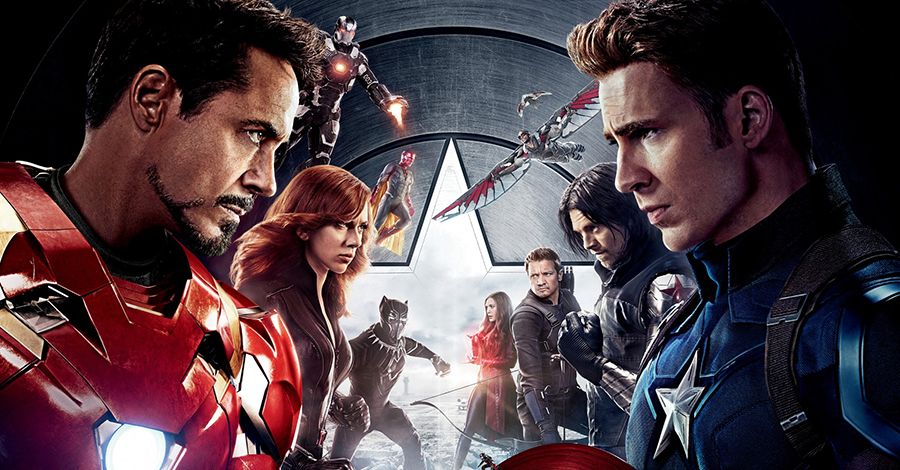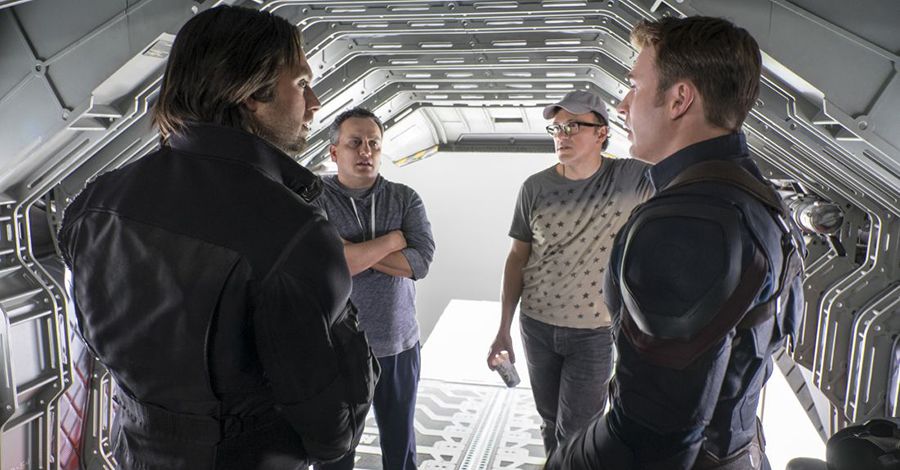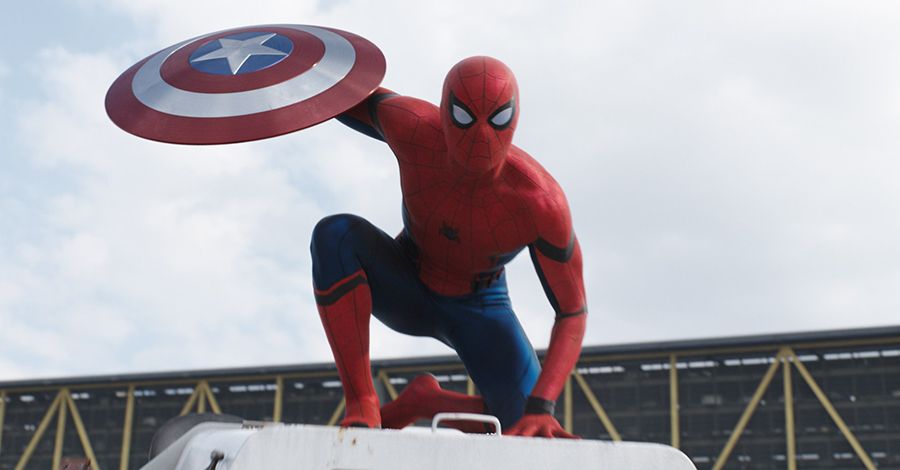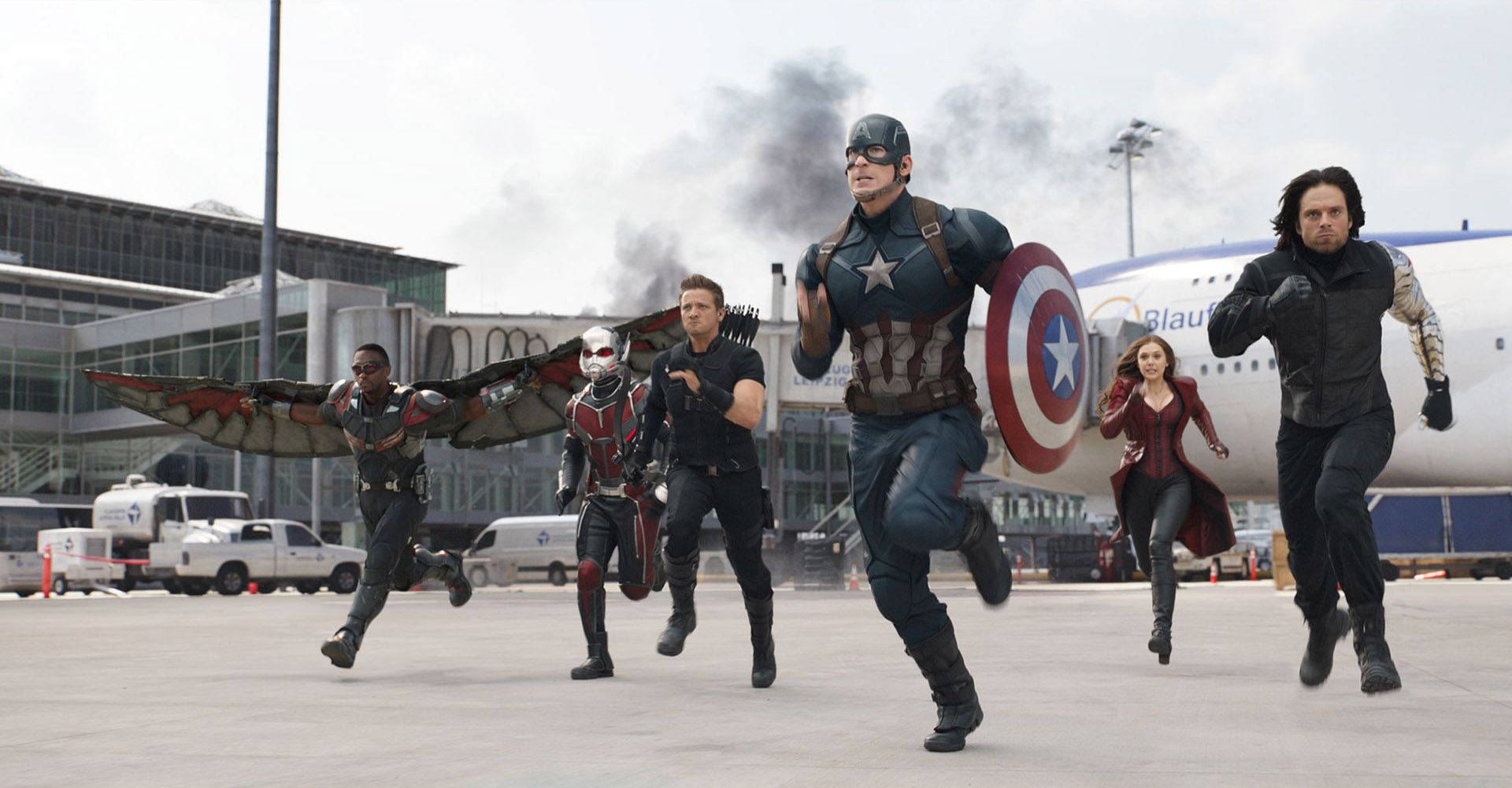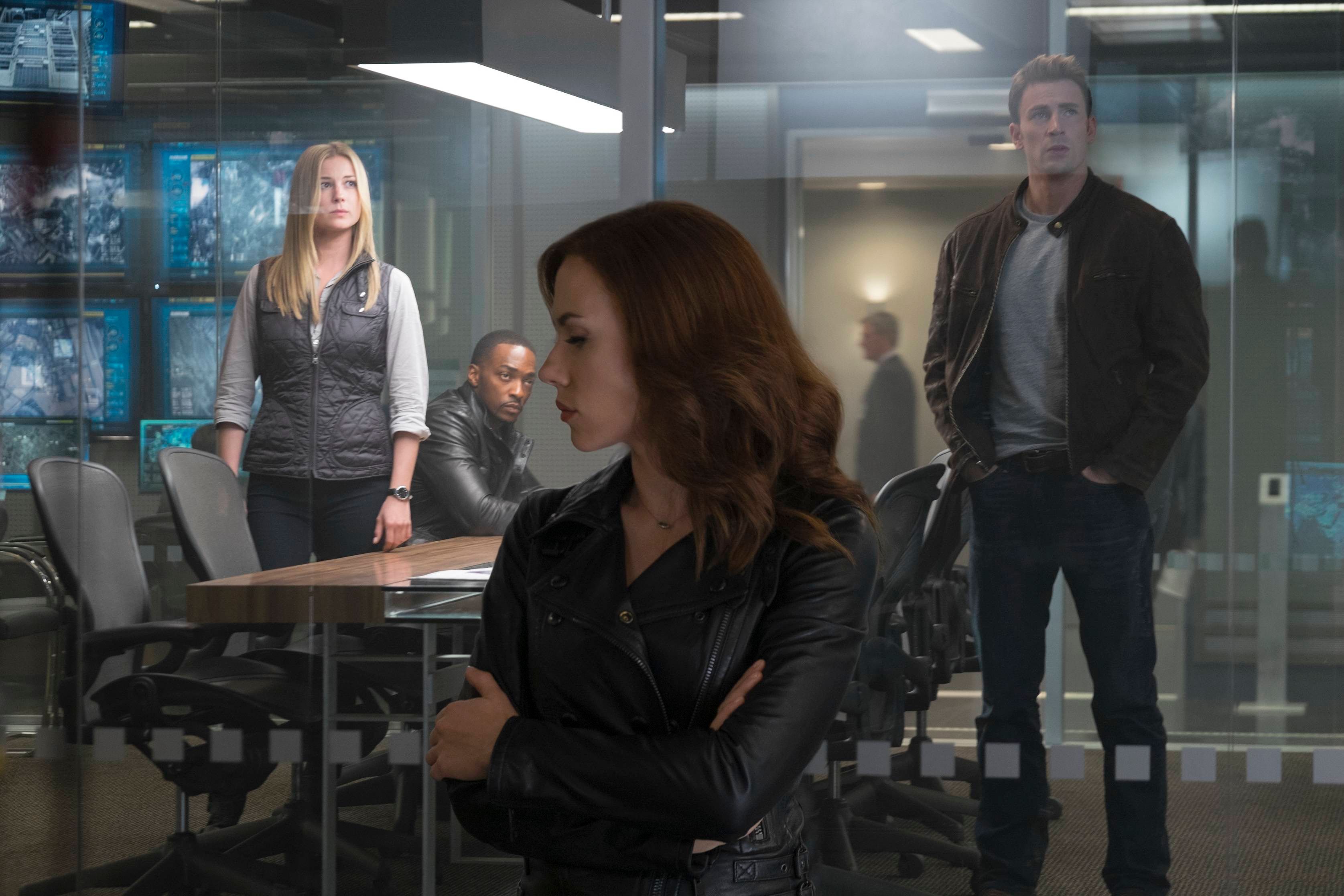And there came a day, a day unlike any other, when Earth's mightiest heroes united against a common threat: Loki and his Chitauri army. In 2012's "The Avengers," the trickster god's dreams of conquering the planet were dashed by the Marvel Cinematic Universe's newly assembled Avengers. After enjoying more solo adventures throughout 2013 and 2014, the sextet of heroes reassembled to stop a planet-destroying artificial intelligence in 2015's "Avengers: Age of Ultron." That film left the team revamped, with stalwarts Captain America and Black Widow welcoming War Machine, Falcon, Scarlet With and Vision to their roster.
In "Captain America: Civil War," however, that new Avengers line-up makes an error in the field -- and that error leads to casualties. As a result, a governing body is proposed to monitor the Avengers -- and that doesn't sit well with some of the team's members. Captain America strongly opposes it, while Iron Man believes it's a necessary step to prevent further tragedy. The two Avengers, with teams of like-minded heroes surrounding them, eventually clash over their convictions. It's Avenger versus Avenger -- a battle that will surely leave Earth's mightiest heroes changed forever.
RELATED: WATCH: Go On a Journey with Steve Rogers in New "Captain America: Civil War" Featurette
Ahead of "Civil War's" release this Friday, directors Joe and Anthony Russo spoke with CBR about pushing Captain America to the limit, rebooting Spider-Man, building a better action sequence and the ramifications of this mighty altercation. And they even look ahead towards their upcoming pair of "Avengers" films, which may be even bigger than "Civil War."
CBR News: Out of all the comic book events, what made "Civil War" a worthy vehicle for a Captain America story, especially following "Captain America: The Winter Soldier"?
Anthony Russo: Cap's relationship with Bucky is a very personal one. That was a big part of the Cap story that we wanted to push forward from the end of "Winter Soldier." We certainly felt that relationship was unresolved. That was the upside of "Civil War." We could put Cap in a very personal conflict with the people who are closest to him. We really thought of it as a bit of a conflict between his new family and his old family. His old family, being Bucky, and his new family, being the Avengers. It seemed like the best road to a very complicated, very personal conflict for Cap. That's really what we were looking for in the next Captain America movie was, "How do we test that character? How do we bring him to places we haven't seen him yet?" This story just gave us more places to go than any other.
The battlelines are drawn. It's Team Cap versus Team Iron Man. Given their conviction and arguments, is there really a right or wrong side?
Joe Russo: We thought the storytelling would be more complex if both characters were right and wrong, and that when you walked out of the theater, you could argue with friends and family about who was right. There are complicated issues and there isn't a clear right answer to any of this. It reflects reality when you put the characters in an irreconcilable situation. The intent of the story was to make it complex and to allow the audience to decide.
RELATED: "Civil War" Team Reveals How They Recruited Spider-Man & Black Panther
Anthony: Also, the way we crafted it was around a basically unresolvable conflict, which is, to some degree -- as individuals in a society -- we need government regulation in order to function. At the same time, that's always bumping up against individual freedom from those same kinds of laws and control in order to realize personal motivations and desires. So, it's this really eternal conflict between the two that I don't think can truly ever be reconciled. It's part of why this conflict is so difficult in this movie.
Why were Black Panther and Spider-Man the best choices to give different perspectives on this war?
Joe: We wanted different factions facing off against each other. We wanted to use Panther because we had an idea to give him a motivation that would give him a very emotional and high-stakes reason for investing in the plotline, but in a very different way than the rest of the Avengers.
Spider-Man, again, as we were working on the script, it felt like we were going to wind up with -- the best way to phrase it is that the tone was going to be too consistent for our taste. We wanted to make sure that there were variances in the tone throughout the film. The problem with adding humor to characters who are involved in very high-stakes plot is you undermine the stakes. If the characters are making jokes, then certainly what they are dealing with can't be that significant. So, we brought in Spider-Man and Ant-Man as characters who could diversify the tone for us, and give the movie some movement and layers.
With Spider-Man's involvement coming as part of a deal with Sony Pictures, how much of the wall-crawler in "Civil War" is your vision of the character?
Anthony: We got to reboot him completely. Him being in this movie only came from sheer force of will. It started with our desire to have him in the movie for story reasons that were very important to us. Then, it flowed up into a business decision from that point. The entire reboot was just focused on "Civil War."
RELATED: REVIEW: "Captain America: Civil War" is Everything We Want in a Superhero Movie (and More)
It's no spoiler that "Civil War" features the superhero brawl to end all superhero brawls, as Iron Man and Captain America's teams clash. How did you approach that sequence in terms of the action and showcasing some of the relationships?
Anthony: In that sequence, there are two sides of that conflict. One side is trying to get away so they can confront the super-soldiers that Zemo is going after. The other side is trying to stop them and capture them. They both have very clear objectives. The interesting thing past that is everybody has individual motives that sometimes dovetail with those team motives, and sometimes don't.
Black Panther certainly wants to kill the Winter Soldier in that sequence. Spider-Man just wants to impress Mr. Stark. Vision is caught up in the complexities of his deteriorating relationship with Scarlet Witch. Everybody has a very personal story unfolding in that sequence as well as these over-arching team objectives. That was very important to us. We love action. We did a lot of that in "Winter Soldier" and now in "Civil War." But, for us, it's always got to be strongly driven by character and story. Those individual stories really allow us to find an individual road for everybody through the action.
It's definitely an impressive roster of heroes, but early rumblings suggested Captain Marvel might be involved. Were there ever any discussions about introducing her in this film ahead of her 2019 solo movie?
Joe: We discussed everybody early on. It was a wide-open conversation. We were trying to figure out what direction we wanted to go in with the storytelling and who were the best characters to help us tell that story. Ultimately, this is the set of characters we ended up with.
What were some of your favorite rumors during preproduction and filming?
Anthony: We are aware of them sometimes. The hard part of it is production moves at such a furious pace that it is difficult to process too deeply because you are just trying to keep your head above water with the production.
Joe: I think there was a Red Hulk rumor. There was a "Pepper Potts is in the movie" rumor. That rumor may have come because we sat down and talked to Gwyneth [Paltrow] about "[Avengers:] Infinity War." People might have misinterpreted that meeting.
To use the comic book cliche, when the smoke clears, nothing will ever be the same again. How does "Civil War" affect the Avengers as a team, the Marvel Universe as a whole and set the groundwork for "Infinity War?"
Anthony: We've always loved the storytelling adage, "Write yourself in a corner," meaning put yourself in a place narratively where you cannot figure out what the move forward is. For us, one thing that excited us so much about "Civil War" was that we were telling a story of a family that we've seen develop over the course of several movies. They have a very specific purpose. They have very layered and intense relationships with one another. This was a story of how that family breaks up. The family fight. It's very much a story going forward of, "Can this family repair itself from what's happened to them? If they can, how can that possibly happen? Will things ever be the same again?" Those are all the questions that we want to push forward to "Avengers: Infinity War."
You guys are comic book nerds, too. How giddy are you to be tackling something as iconic as "Infinity War?"
Joe: It's insane. To go back for a second, I want to talk about Spider-Man. I've been collecting comic books since I was 10 years old. I was at conventions every weekend. I have a huge collection that is still in my closet. Spider-Man was my favorite character growing up. The opportunity to be able to interpret him on screen was a dream come true. Also, then being able to interpret some of the biggest crossover events in Marvel history... We feel like kids in a candy store. It's storytelling that had an impact on me as a child. When things impact you when you are younger, you have a strong emotional connection to the content. To be able to now take these characters and execute them, with all the resources that we have... We have the best job in the world.
Hugh Jackman has stated he'd jump at the chance to have Wolverine be a part of "Infinity War." Is that on your bucket list? Have you approached -- or will you be approaching -- other studios about their properties?
Joe: Hugh is amazing in that part. I'll be honest with you. One of my prized possessions is "Incredible Hulk" # 181, the first appearance of Wolverine. If I were to list my favorite characters growing up, Spider-Man was #1 and Wolverine was #2. The opportunity to work with Wolverine would be amazing. We never say never. At Marvel, anything is possible, but who knows? Sony was an incredible partner in allowing us to use Spider-Man. We'll have to see if any other studios are interested in partnering in that way.
As far as you are concerned, which scenes from the "Infinity War" comic books must make it onto the big screen?
Anthony: That's spoilery. We're definitely sourcing both interpretations of "Infinity War." We're definitely going back and looking at them. I read the original, so I'm trying to remember what it was that I loved so much. We're searching back to both runs and just circling frames that we love, moments that we love and figuring out if we can incorporate them in the movie.
Directed by Joe and Anthony Russo and starring Chris Evans, Robert Downey Jr., Scarlett Johansson, Anthony Mackie, Sebastian Stan and more, "Captain America: Civil War" opens on May 6.

